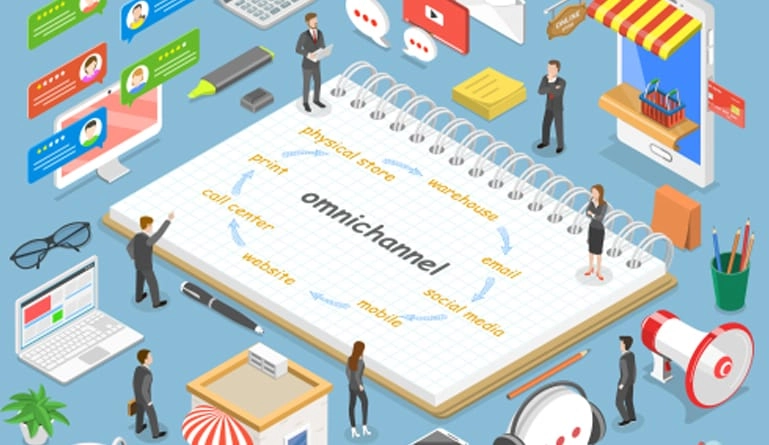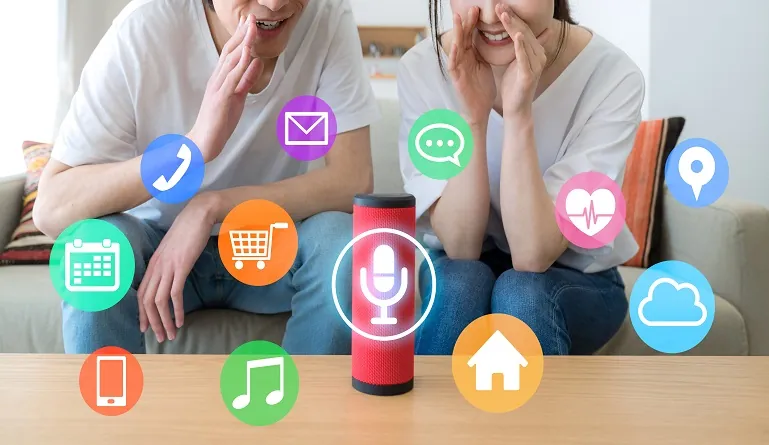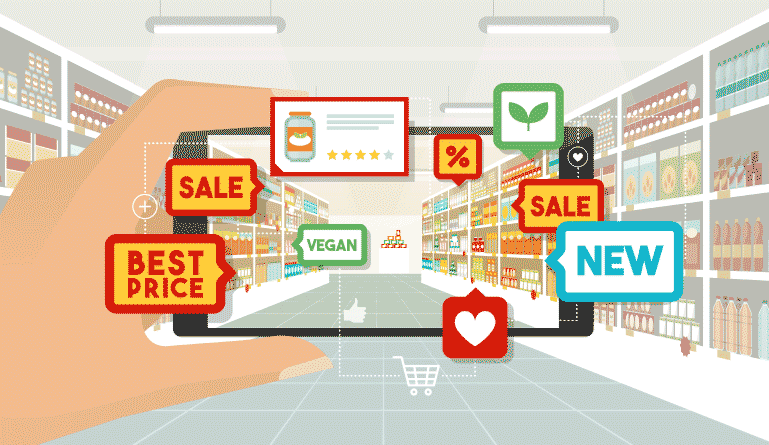Omnichannel marketing is the new way customers are completing their buying journey.
Only with an effective B2B omnichannel marketing strategy will you be able to provide your customers with a seamless journey for completing their buying process.
Omnichannel marketing is becoming very popular for marketers to implement but what exactly is this new wave of marketing? Omnichannel marketing campaigns are when you provide a seamless user experience across all channels relevant to their buying journey. The term omnichannel has come about recently thanks to the new way people progress through the marketing funnel.
With more than 210 million adults in the U.S. alone using an average of four different devices to access the internet, offering an omnichannel experience that seamlessly connects these devices is essential. The difference between omnichannel marketing vs multi-channel marketing is that multi-channel marketing does not connect a customer’s journey that now spans days, times, locations, and different channels. These different channels don’t just include online channels either. A customer’s buying journey today includes all types of channels like word-of-mouth, billboards, and even your physical storefront. By providing omnichannel communication, you offer your customers a seamless journey that makes their shopping experience easier and more enjoyable.
Offering a seamless omnichannel design might sound difficult but there are many omnichannel marketing strategies you can utilize to make your journey into this new marketing style simple and lucrative.
Most Effective B2B Omnichannel Marketing Strategies
Context of Content
It is true that content is king but without the proper context, that content means nothing. To achieve omnichannel success, you must provide customers the information they value at the right moment. To guarantee that your omnichannel marketing efforts are successful and that you’re providing the best content at the best times, begin by answering these questions:
- What kind of content are your customers consuming?
- When are you customers consuming this content?
- Are the marketing tools you’re using adequately converting customers?
- Are your marketing efforts optimized for the device your customer is using?
- Are you upselling and cross-selling your customers’ other offers?
When you can answer these questions, you’ll be able to provide a more seamless omnichannel experience. To be able to answer these questions though, you need to gain a deeper knowledge of your customers. Only once you have learned everything you can about your customers can you perfect your omnichannel B2B marketing strategy.
Know Your Customer
Not until you know your customers on a deeper level can you provide them a valuable omnichannel experience. To do this, you need to know who your customers are, where they come from, what their goals are, and any challenges they may be facing or looking to solve. You can learn more about your customers through customer feedback, social listening tools, and even lead capturing landing pages. It is also important to know which channels your customers are using to access your content. According to a report conducted by Netsetive, the channels that will bring you better omnichannel success include:
- Digital advertising
- Your corporate website
- Mobile web, search and messaging
- Social media platforms
- Email campaigns
- In-store engagement and promotions
- Live events
With coupons, outdoor advertising, and even television advertising not being as popular as they once were, many companies are now focusing more on offering better online channels for their customers to complete their buyer journey because these are the best omnichannel marketing solutions. It is important to remember, though, that not all companies are the same and the best channels for your customers will depend on your audience and their buyer personas.
Responsive Web Pages
Thanks to the digital revolution, customers are constantly plugged-in nowadays. This is important to remember and to set up your website to be responsive to whatever device your customer is on. When a customer tries to access a web page on their phone or mobile device and that page does not load correctly, with much of the information cut off or they must turn their device just to see the page properly, this will deter a lot of customers from further exploring what your website offers. Make sure your web pages are responsive, especially your landing pages, where customers input their personal information.





